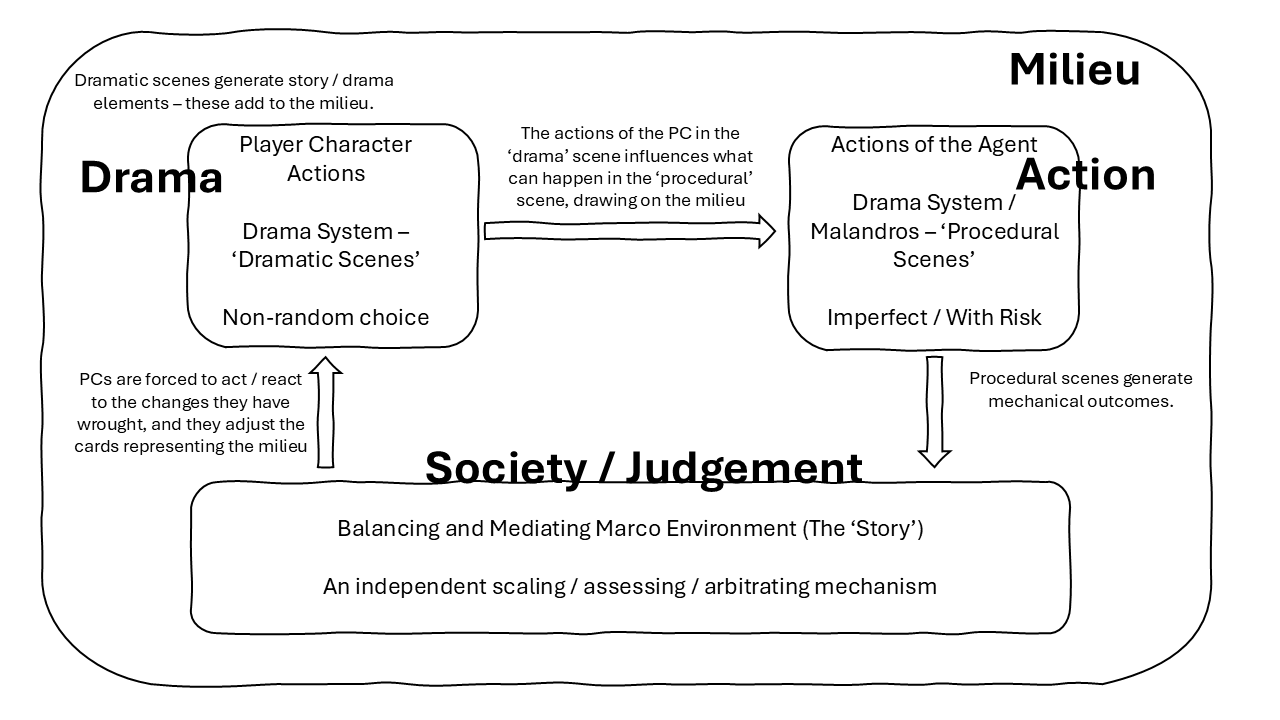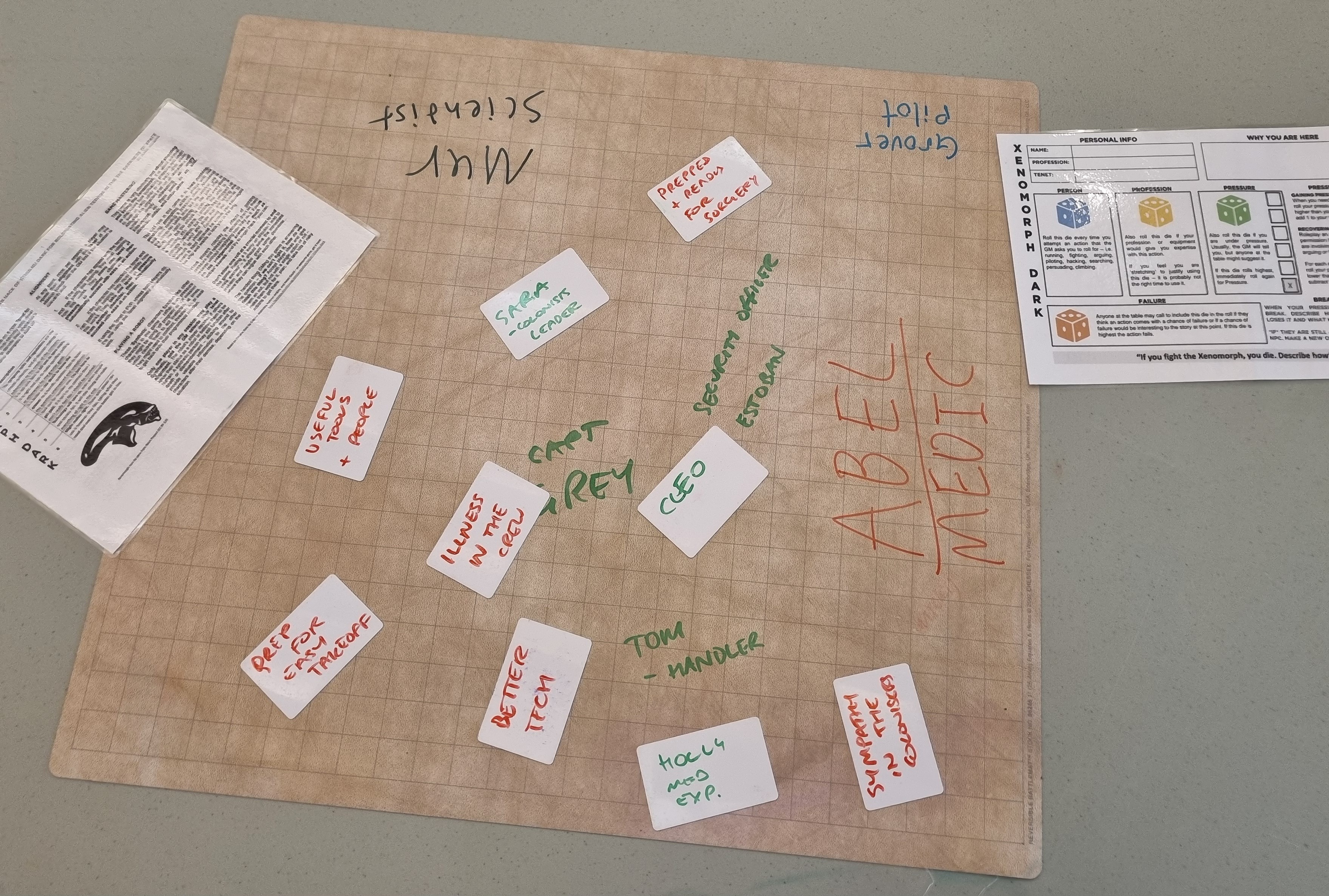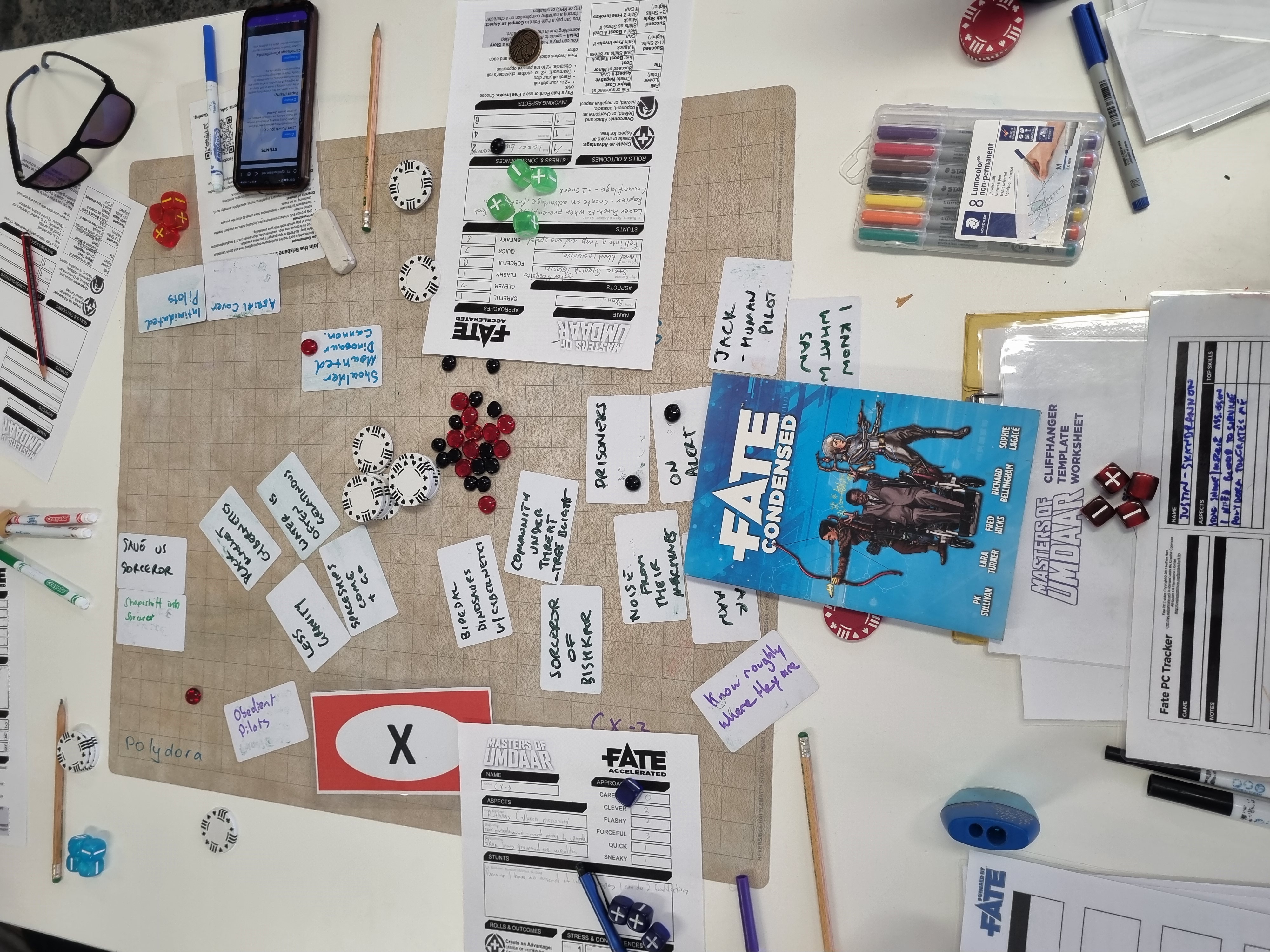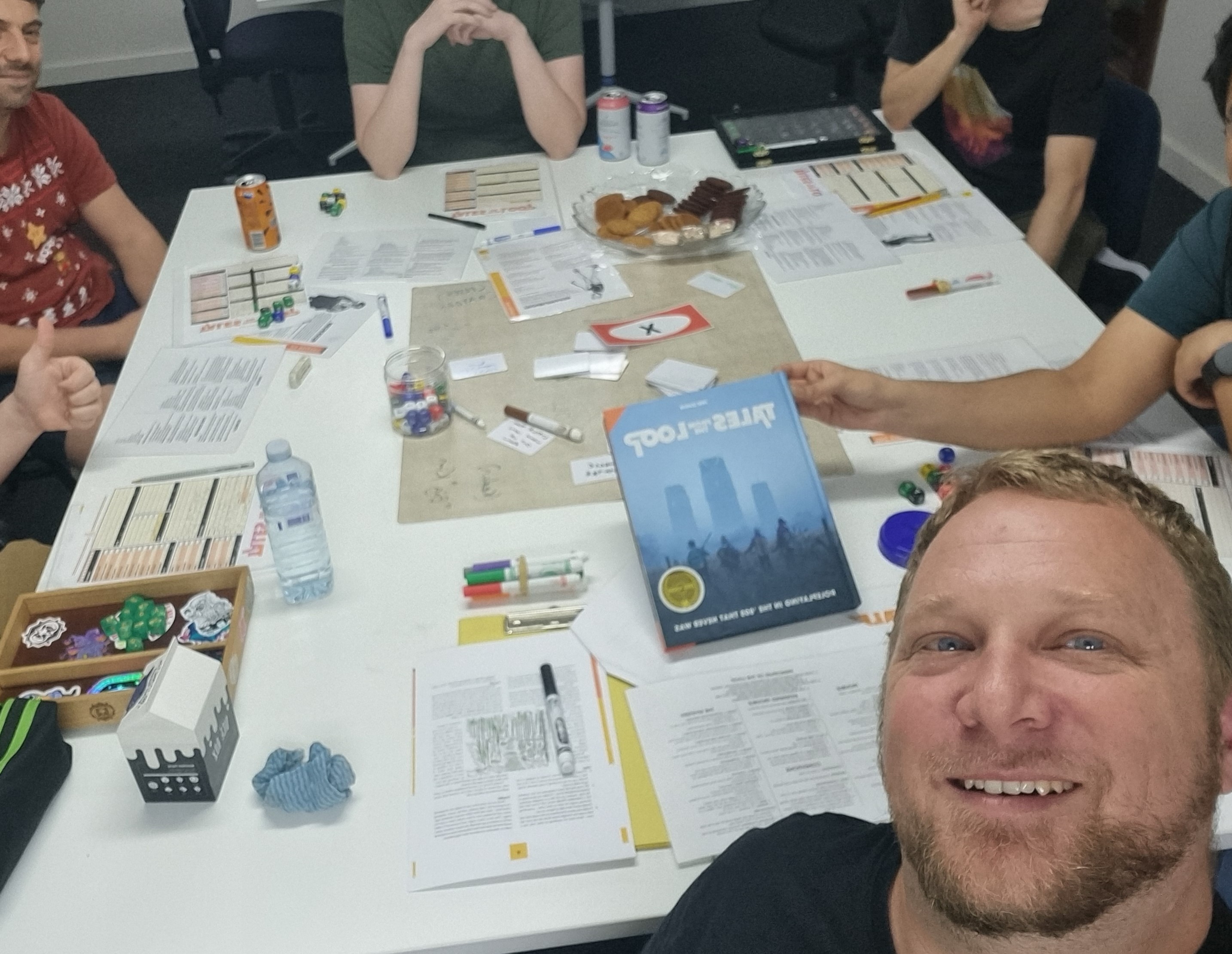The Milieu (shared imagined space)
The Milieu
The milieu (Meel-Yuh in my Australian accent!) is the contextual stuff in an RPG – the social setting, the known facts, scene / set dressing, and all the other external ‘stuff’ which is going on.
Without going down into the awfulness of GNS & ‘Big Model’ debating of years gone by, I’ll borrow a couple of terms – the first one being the ‘Shared Imagined Space’ – the milieu I guess. My favourite RPG of the last decade or so (Fate) does an amazing job of making much of this shared imagined space tangible, using written Aspects which are placed on the table (index cards or erasable cards like I use) to denote important truths about the game world. Aspects in Fate are essentially ‘things which are true’ – accepted truths of the game in that shared imagined space.
To take a tangent from my ‘non-gamer’ academic background, some of this milieu is fixed / factual (i.e. there is a Forum in Rome, it is a building, made of stone and concrete) and some of this is Phenomenological - an experienced or observed set of facts, often interpreted by the receiver in a communication (i.e. ‘The Cornelii are out to get me’, or ‘The plebians are on the verge of revolt’).
So what does Fate do? It allows us to put both ‘The Forum’ as an Aspect on the table, but also as established by the players to write ‘The plebians are revolting’ (Thank you Mel Brooks and antecedents of the joke there). One of those things is a big tangible object, we can google the Forum if we need dimensions or to know the layout or whatever. We have a ‘thing’ which may impact our game. On the less tangible side, we need to communicate and define what we mean – are the plebians arming themselves and marching in the streets, or are they booing the Praetor and refusing to show deference to him by jostling the lictors and getting in the way? Is it simply grumbling in the wine houses and in the poorer insulae of the Subura?
Here is the interesting part – there are phenomenological elements even to the ‘big tangible object’ too – we ask questions such as ‘as a plebian, am I allowed in the forum?’, ‘what are the customs here?’, and ‘how is a woman regarded in the confines of the forum?’. These phenomenological elements are what emerges through play – and that is where dialogue among the players is critical. Now I get to ask cool stuff like “Do I have a stake in this? How?” and “what do I want to do about that?”, and (for our political game about Roman women) “who else is involved, how, what is *their* stake and how must/should I engage with them to achieve my needs?"
I’ve updated my conceptual image of how the game works to incorporate the milieu into the process. 
An example – Cassia visits her sister Aurelia because Aurelia is married to a senator. Cassia needs her sister to convince her husband to change the policy for bread distribution in the Subura or else the business interests of Cassia’s family will be put at risk by the plebian discontent.
Now ultimately, using the Drama System methods, what Cassia REALLY wants from Aurelia is acknowledgement that Aurelia respects Cassia, despite their difference in station (as a senator’s wife, Aurelia vastly outranks her sister). So in the scene, Cassia is trying to demonstrate her grasp of politics and the methods of government to show her sister that she is no fool, while Aurelia is downplaying the knowledge Cassia shows – after all, Aurelia holds all the cards here. The scene ends with Aurelia agreeing to speak with her husband, but not really acknowledging that Cassia’s political arguments have helped, denying her sister the emotional satisfaction she needs.
Mechanically (using the basic Drama System rules), even though she agreed to the surface level request, because she is denying the underlying emotional need of her sister, Aurelia pays Cassia a Drama Token. ALSO, the agreement between the sisters that Aurelia will convince her senator husband to intervene is added to the shared imagined space – the milieu.
Having a card added to the milieu such as ‘Imploring Cannus, Aurelia’s husband to solve the bread crisis’ creates this shared reminder for the players. Perhaps this is a scene where Cannus, as 'agent' (remember my earlier post about agency and politics?) has to act on the ladie's behalf and convince the senate to change the policy? This can be used to call a ‘procedural’ (action) scene. Alternatively, we can accept that (as long as no one objects) that the manipulation of Cannus by Aurelia is a success and just handle that narratively. This is the next bit to solve for - 'what do we use as the task resolution system'? (I quite like the Drama system one to be honest... but it seems to have a bad rep. Anyone with practical experience with it (no theory) know why?).
Modelling the milieu as a game element was one of the easier parts for me, as this is something which I do in every single game I have GM’d over the last 5 or so years. I quite literally (as outlined in my GM guide: https://smoggy-au.itch.io/casual-gamemaster-guide) put cards on the table with sentences or notes on them, which we then ‘tap’ or point to as we call the relevant detail into focus as we play.
I’d like this to become a key part of the procedure for ‘calling a scene’ – i.e. any player (but particularly the player of Cassia or Aurelia) can call a scene about the issue – anyone can say ‘I’d like to see how that plays out’ and make either a drama scene or a procedural (action) scene. I’m unsure if this needs a particular mechanic, or if this is more ‘advice’ but we’ll see how that goes in playtesting I think.
Here are some photos of the 'milieu' cards on the table from other games (inc. Fate, PbtA, Cthulhu (Xenomorph) Dark, Tales from the Loop (YZE) etc.



Get Oppian Wives
Oppian Wives
A playtest / ashcan of the game of women in Roman politics
| Status | Prototype |
| Category | Physical game |
| Author | Smoggy AU |
| Tags | ausrpg, Tabletop role-playing game |
More posts
- Draft 0.1 is Ready for Playtest!Feb 12, 2025
- The Final (Writing) PushJan 29, 2025
- Procedural (Action) ScenesJan 13, 2025
- GM or GM-Less?Jan 06, 2025
- Oh no, I accidentally created a ‘minigame’Dec 19, 2024
- Currencies, Bennies, Points, Tokens – Rewards and the 'Core Loop'Dec 16, 2024
- Roman Mosaic BuildingDec 04, 2024
- Why Women? And Politics?Dec 02, 2024
- Social PVP Mechanics in RPGsNov 27, 2024
Leave a comment
Log in with itch.io to leave a comment.